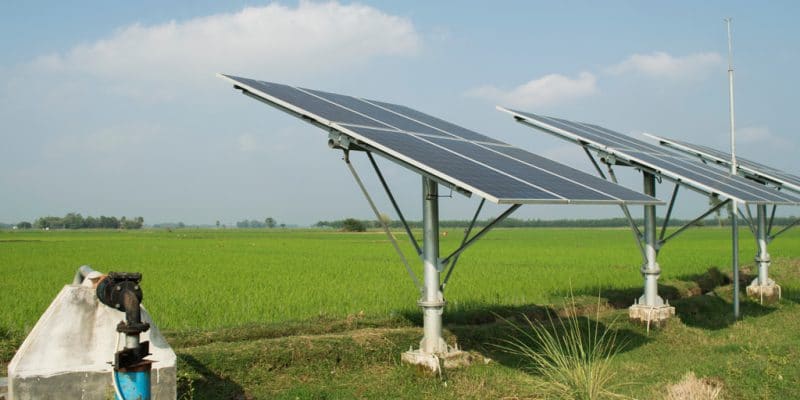A partnership has just been established between the International Finance Corporation (IFC), the World Bank subsidiary responsible for private sector financing, and the Agricultural Bank of Egypt (ABE). The collaboration aims to finance solar-powered irrigation systems in Egypt.
This is undoubtedly good news for Egyptian farmers at a time when solar energy is becoming more democratic and is spreading rapidly in Africa. They will be able to benefit from financial support from the International Finance Corporation (IFC), the World Bank’s private sector financing arm, and the Agricultural Bank of Egypt (ABE). The two financial institutions are joining forces to finance the deployment of solar-powered irrigation systems in the country of the pharaohs.
In Egypt, as elsewhere in Africa, farmers are using diesel-powered generators to irrigate their plantations. In addition to their polluting nature, these generators are also expensive in terms of fuel and maintenance. The IFC is supporting the switch to solar power, which could bring financial relief to Egyptian farmers, saving them at least 14 billion Egyptian pounds (US$875 million) a year.
Reducing CO2 emissions
Solar energy should logically reduce the CO2 emissions of the plantations. The initiative is part of the IFC’s advisory work to strengthen the clean technology sector and support entrepreneurship in Egypt.
“As part of the Clean Technology Entrepreneurship and Market Development Project, the IFC is helping selected financial institutions to build their capacity to provide financing facilities for off-grid PV systems in the agribusiness sector. The project is being implemented in partnership with the governments of Denmark, South Korea and the Netherlands,” says the IFC.
It is therefore up to the Agricultural Bank of Egypt to distribute the funds granted by the IFC. The financial institution serves no fewer than 4 million farmers in Egypt. This shows its weight in the agricultural and financial sectors. “Developing the use of solar energy technology among farmers is part of our strategy to support agricultural and rural development in Egypt. It will also contribute to the country’s strategy for 2030 to encourage agricultural investment and rationalise the use of resources, including energy,” says Sami Abdel Sadek, vice-president of the Agricultural Bank of Egypt.
Jean Marie Takouleu







